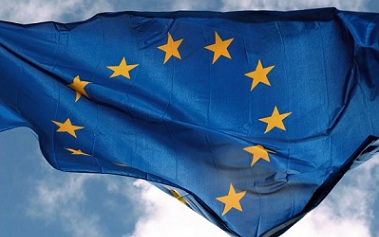7 reasons why cloud technology needs Europe
 Neither Google, nor Amazone, nor Facebook are located in Europe. Nevertheless, it can offer the world of cloud technologies much more than it might seem at first glance. In this article we will give 7 arguments in favor of this statement.
Neither Google, nor Amazone, nor Facebook are located in Europe. Nevertheless, it can offer the world of cloud technologies much more than it might seem at first glance. In this article we will give 7 arguments in favor of this statement.Cloud technology is generally considered a North American theme, since most of the largest cloud providers are located in the United States. Well, this is true, the business side of the issue really matters. But other continents in general and Europe in particular can make a much larger contribution to the development of clouds than just restrictive privacy laws.
1. Clean, innovative energy
Northern Europe, for example, is becoming a testing ground for the most innovative data centers due to the relatively low temperature and the abundance of renewable energy sources. In Finland, there is a seawater cooled Google center, in Sweden, an industrial complex Facebook, provided by hydropower. In Iceland, GreenQloud and Thor Datacenter are located - a cloud provider and data center, fully provided with renewable energy.
')
2. Eastern Europe - a storehouse of talent
 Eastern Europe has become the most important geographic region for the IT world as a whole, because from there comes a lot of programmers, engineers and other professionals whose skills are necessary for today's companies. But this region is not only a place for outsourcing technical tasks: every year there are more and more entrepreneurs creating cloud startups. Among them, Nginx is a web server created and recently commercialized by the Moscow entrepreneur Igor Sysoev.
Eastern Europe has become the most important geographic region for the IT world as a whole, because from there comes a lot of programmers, engineers and other professionals whose skills are necessary for today's companies. But this region is not only a place for outsourcing technical tasks: every year there are more and more entrepreneurs creating cloud startups. Among them, Nginx is a web server created and recently commercialized by the Moscow entrepreneur Igor Sysoev.3. London - the financial center
Surely, there are many reasons why Dublin (Ireland) is becoming a “hot spot” for data processing, becoming the European base for cloud businesses of Amazon Web Services and Microsoft, but one of these reasons is precisely the proximity to London and the absence of dependence on its energy system. London is a very important market, especially when it comes to the financial sector, which annually invests billions of dollars in IT technologies. Of course, cloud providers want to be closer to the main global financial center.
4. CERN (CERN)
 It suffices to mention “Tim Berners-Lee” to describe the impact of CERN on cloud computing, because, as we know, it is impossible to imagine the existence of a cloud without the Internet. But CERN also created a small thing called the Large Hadron Collider, which, in addition to studying the Higgs boson, is an impetus possible to create the most impressive research network covering dozens of countries and supercomputers around the world, while creating almost one petabyte of data. CERN still favors open sorce support.
It suffices to mention “Tim Berners-Lee” to describe the impact of CERN on cloud computing, because, as we know, it is impossible to imagine the existence of a cloud without the Internet. But CERN also created a small thing called the Large Hadron Collider, which, in addition to studying the Higgs boson, is an impetus possible to create the most impressive research network covering dozens of countries and supercomputers around the world, while creating almost one petabyte of data. CERN still favors open sorce support.5. OpenNebula
OpenNebula is a fairly popular open source cloud platform, competing with major US projects such as OpenStack and CloudStack. At the moment, this platform is under the leadership of the Spanish scientist Ignacio Llorente. The project has existed since 2005; among its users are the largest European research institutions. Despite the fact that this platform has no big patrons with big names like its competitors, its existence seems to be rather cloudless, thanks to a huge user base.
6. Third of Twitter analytics traffic
DataSift , headquartered in Reading, England, is one of three companies, along with Gnip and Topsy, which has the right to sell information that passes daily through Twitter. Social media in general and Twitter in particular is the most important platform for analysis in which large corporate clients are interested, so the ability to extract the necessary information from there, and then analyze it, is really important for business.
7. Privacy
 US cloud providers may not always agree with the European Union and with individual countries when it comes to laws governing information, but every citizen of the country should pay tribute to the European government. If we talk about their data confidentiality clauses, then, for example, in Germany there is a ban on the use of face recognition on Facebook, which helps to preserve privacy.
US cloud providers may not always agree with the European Union and with individual countries when it comes to laws governing information, but every citizen of the country should pay tribute to the European government. If we talk about their data confidentiality clauses, then, for example, in Germany there is a ban on the use of face recognition on Facebook, which helps to preserve privacy.What do you think, when the "clouds clouded the sky" over Europe?
Source: https://habr.com/ru/post/154971/
All Articles